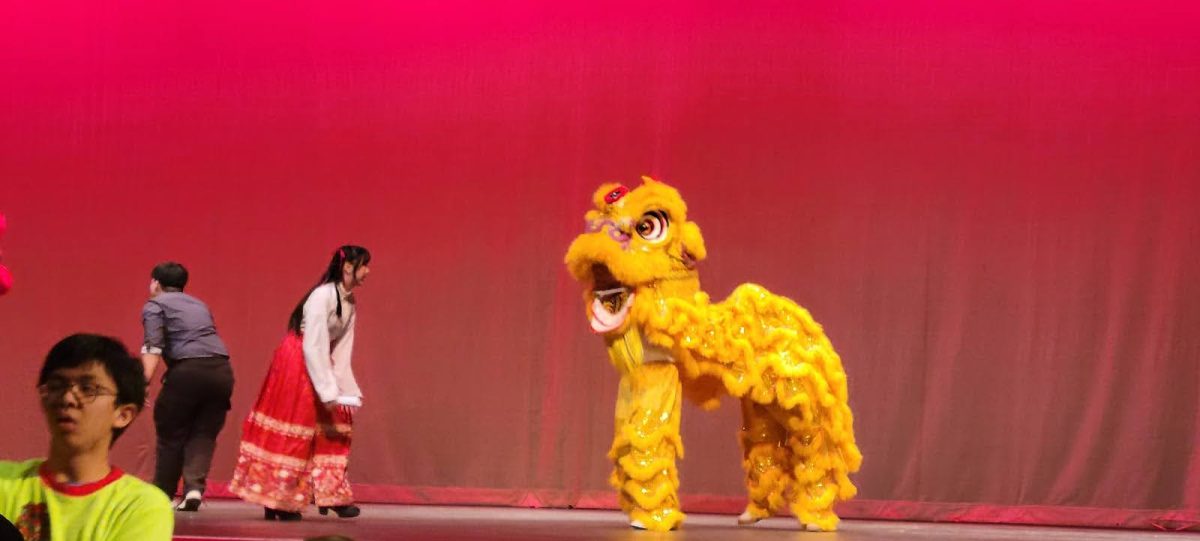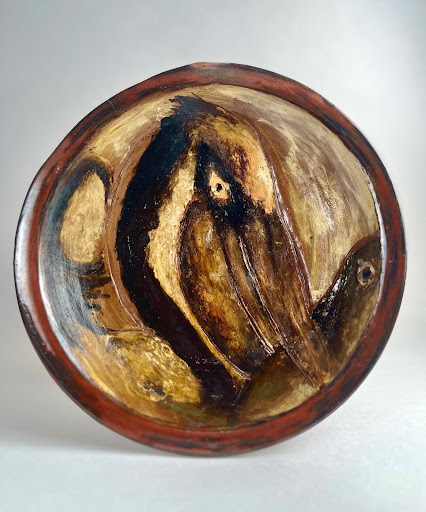
Skyline’s Chinese language program held its annual Chinese New Year Gala assembly on January 13. The assembly, which was optional to attend, consisted of ten performances containing elements of pop culture and tradition significant to Chinese culture.
The solo dance, Lotus, featuring Kaitlyn Cao, was a noted audience favorite. “Her performance was just gorgeous and everything got much quieter in the room when she was dancing,” said English teacher Charisse Stephens.
The Jasmine Flower dance was also heavily praised. English teacher Lisa Thornbrue commented on how “gorgeous and beautiful” the dance was and how it was “very obviously Chinese culture”. Unfortunately, performances come with challenges, and the Jasmine Flower dance was no exception. Chinese teacher Guijun Zhang stated, “They didn’t finish the dancing because the music was wrong.” She explained that she had to update the original music she shared with Stage Production teacher Joe Rogan in a Google Drive folder, but things didn’t go as planned. “The problem is that he copied all the music we used in the rehearsal into his computer and he played from his computer,” she said. She added, “But it’s okay. We’ll learn from this. We’ll do better next year.”
Other acts in the assembly relied on teamwork. The song Yellow was sung in Chinese by Hailey Blatnick with live guitar accompaniment from Rohan Suresh. “It all went really well,” Suresh said. “A lot of credit to the singer, Hailey, she definitely did really well.”
Another musical duet was an instrumental piece, performed by pianist Joyce Wang and violinist Avery Li. Li explained that the two of them practiced outside of school to be performance-ready. “The most challenging part was finding time to practice together,” she said. The key, she revealed, was starting preparation early. She added, “We started practicing a few months before and […] ran through it a couple of times before the performance and it turned out pretty good.”
Other performances included Chinese 1’s Kung Fu Fighting, Chinese 3’s Super Idol, and Chinese 4’s Brother Louie. Between acts, Senior Tyler Le and Sophomore Annie Li provided hilarious commentary with integrated cultural facts surrounding the new year, like that of the upcoming year’s Chinese zodiac being the Wooden Dragon and the start of the new year being February 10. “The script was already outlined and I was told to go in to add some actual chunks to it to make it feel lively enough to actually be a script,” Le said. The experience was fun, according to Le. In the delivery of the script, he found himself only a little nervous because of his positive experience the prior year in the assembly, which he also hosted.
The Gala was brought to life by its authentic costuming. This was perhaps most notable in the use of the dragon costumes, which were heavily praised by the audience. “I did like seeing the authentic costuming; seeing the dragons up close enough that I could really look and kind of get a feel for how their eyes were blinking and just think more about how someone would operate the dragons,” Thornbrue said. Stephens commented, “The dragons, that I think she ordered from China, are just so cool.”
This is the second year the assembly has been hosted in person, but it was previously available online since 2021. In the midst of the pandemic, Zhang decided to start the tradition to boost student morale and connect with her classes. “We come back, and my students want to keep doing it […] so then we decided to do live ones,” Zhang said. She initially thought to do an after-school performance but later arranged the optional assembly during the 2B block to better fit the schedules of her busy students.
“I’m trying to give my students a real experience of how Chinese people celebrate Chinese New Year,” Zhang remarked. “I just feel like I don’t think they can remember how much they learned in Chinese class, but, in the future, they can definitely remember the ones who were on the stage singing and dancing or celebrating Chinese New Year.”
The Chinese New Year, also known as the Lunar New Year, is not only celebrated in China; it’s celebrated in many other countries across the Asian continent. Zhang said, “[Skyline has] a very big number of Asian kids, so I think [the assembly]’s more special to Skyline because those kids can feel the connection with their culture too.”
This newly founded tradition will continue until there is no longer an audience. Many teachers in attendance plan to attend again in the future—as expressed by Stephens and Thornbrue—but the fear of audience loss stems from the diminishing amount of students entering the Chinese language program each year. Zhang explained, “Before, [colleges] required two or three years of world language study and, now, they do not have any requirements.” This lack of requirements, Zhang says, causes many students to drop language classes. Chinese is affected by this problem like no other, as it is of common belief that it is a harder language to learn than others provided by Skyline, like Spanish and French. She adds, “I just hope maybe we can get more people to learn Chinese so we can still have enough people who can keep our program going.”



